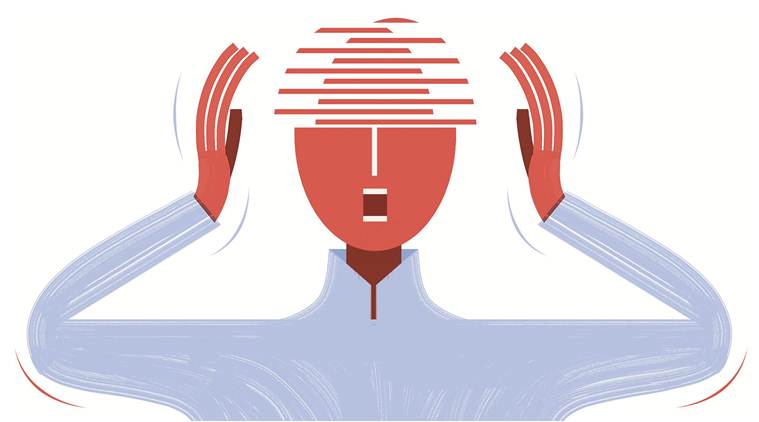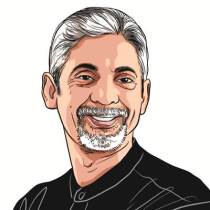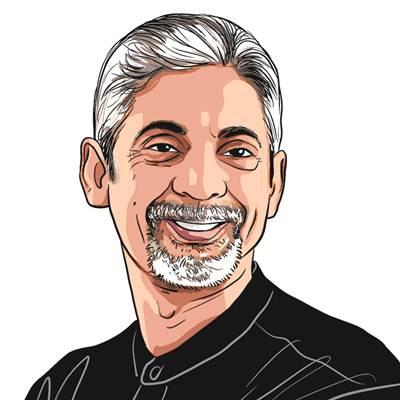The right to mental health
A new report shows how rising mental ill health is causing mounting disabilities, early deaths and fuelling cycles of poverty.

The term “mental health” has become a euphemism for “mental illness”. This is in stark contrast to what it should be, for mental health is the most valued asset we have, the most treasured aspect of our humanity. This is precisely why, when people are asked to compare different health conditions, mental health problems are ranked as the ones they fear the most. This is not surprising, for we rely on the diverse capabilities our mental health underpins to successfully learn and master the skills that make our lives meaningful and worthwhile. So, one would expect that mental health would be the most prioritised of all issues facing the world. Sadly, that is quite far from reality.
Today, the medical journal, Lancet, publishes a report by its Commission on Global Mental Health. The report was launched on Tuesday at the first ministerial on global mental health, hosted by the UK government in London. It not only documents that mental ill health is on the rise worldwide, but that this increase is causing massive amount of disability, early deaths and fuelling cycles of poverty. Most people with mental health problems do not receive care, which prolongs suffering and leads to colossal societal and economic losses. Even worse, they are often subjected to human rights abuses and discrimination. Perhaps no other cause of suffering has been so profoundly neglected.
The situation in India is on par with amongst the worst country-level mental health indicators in the world. In India, suicide is now the leading cause of death of young people, alcohol use is blatantly promoted by commercial interests and its abuse has been relegated to a moral issue to be addressed by primitive, punitive policies rather than through a public health approach, tens of thousands of people with severe mental health problems languish in horrific conditions in mental hospitals or on the streets and appalling deprivations — from under-nutrition to neglect — that affect the development of the brain in childhood remain unchecked. There are virtually no community-based mental health services in the country.
The Sustainable Development Goals (SDGs) represent an exponential advance from the Millennium Development Goals, with a substantially broader agenda that affects all nations and requires co-ordinated global actions. The specific references to mental health and substance use as targets within the health goal reflects this transformative vision.
To help achieve these targets and, indeed, the SDGs themselves, the Commission outlines a comprehensive blueprint for action. It has three unique guiding principles. One, our approach to mental health must cover its full spectrum, from day-to-day wellness to long-term, disabling conditions. We know how to promote mental health, prevent mental disorders and enable recovery. It’s time to use this knowledge to benefit entire populations. Two, mental health is the product of psychosocial, environmental, biological and genetic factors interacting with neurodevelopmental processes, especially in the first two decades of our lives. Because our experiences in childhood and adolescence shape our mental health for life, it is crucial that these years unfold in nurturing environments, which promote mental health and prevent mental disorders. Three, mental health should be respected as a fundamental right by putting people living with mental health problems at the centre of planning services. Everyone is entitled to dignity, autonomy, care in the community and freedom from discrimination.
Achieving these aspirations will require several actions. First, mental health services must be scaled up as an essential component of universal health coverage. Second, barriers and threats to mental health, such as the pervasive impact of stigma, must be assertively addressed. Third, mental health must be protected by public policies and developmental efforts led by the country’s top leadership. This endeavour should involve a wide range of stakeholders within and beyond health. Fourth, new opportunities must be enthusiastically embraced, in particular those offered by the innovative use of community health workers and digital technologies to deliver a range of mental health interventions. Fifth, substantial additional investments must be urgently made as the economic and health case for increased investments in mental health is strong. There is also an immediate opportunity for more efficient use of existing resources, for example, through the redistribution of budgets from large hospitals to district hospitals and community-based local services. Finally, investments in research and innovation must harness diverse disciplines to advance understanding of the causes of mental disorders and develop more effective interventions to prevent and treat them.
Mental health is a global public good. Our reframing of mental health is aligned with the central principle to “leave no one behind” and to the contemporary notions of human capabilities and capital. We believe both in the inherent right of every person to mental health, and that mental health is a means of facilitating sustainable socio-economic development, more complete health, and a more equitable world.
Urgent action to fully implement our recommendations will not only hasten the attainment of the health SDG, but indeed many of the other SDGs as well. While diverse legislation and programmes, from the Rashtriya Bal Swasthya Karyakram to the Mental Health Care Act, provide a robust policy foundation for realising these aspirations in India, we need to ensure that these are implemented. For this, we will need a genuine partnership of a diverse range of groups — from the mental health and development communities to policy makers and civil society — coming together to transform mental health across the country.
Patel and Saxena are professors at Harvard University and the lead editors of the Lancet Commission on Global Mental Health. Patel is also affiliated with Sangath and the Public Health Foundation of India.
For all the latest Opinion News, download Indian Express App
More From Vikram Patel
- Starvation deaths in 2018Stunting due to hunger also holds back the prospects of an entire generation...
- When science masks hateThe medical legitimisation of prejudice was a major contributor to the stigma against homosexuality...
- Compromising positions: Time to reclaim sexuality from the self-appointed guardians of moralityWe should celebrate that young people are choosing to get married later in life, but reject the notion that this delay has any bearing on…




































No hay comentarios:
Publicar un comentario